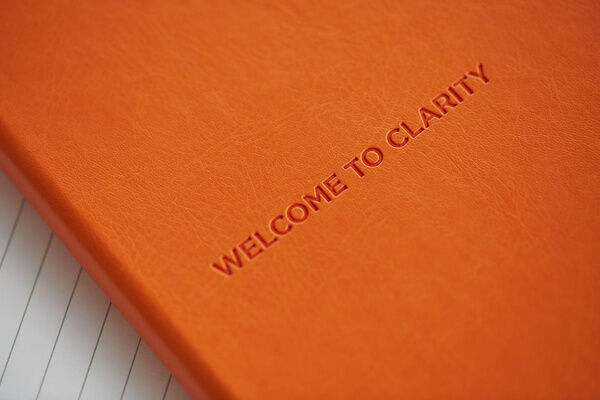In our quest to encourage the use of mediation among lawyers, in the course of 2021 fellow mediator David Hossack and I have provided training for lawyers and produced a series of podcasts on how to best represent clients at mediation. Amidst this, we wanted to understand more about the use of mediation by lawyers in Scotland, so we created an online survey accessible through our website and LinkedIn.

The overwhelming majority (90%) of our lawyer respondents felt that they had a good understanding of what is involved in mediation. Just over half had received training in representing clients at mediation and almost a third were trained as a mediator. Three quarters of respondents felt confident that they had the skills required to represent clients at mediation.
In terms of the use of mediation, whilst almost half had represented clients at mediation within the last 5 years, 39% had not represented clients at mediation within the last 5 years.
Rather discouragingly, only 16% said that they would suggest mediation to clients in most of their cases and 13% said they would never suggest it.
Interestingly, three quarters of respondents were open to using remote mediation. Those who answered "no" to using remote mediation listed their main concerns and it is perhaps not surprising to hear that these were mostly regarding the lack of in-person interaction and the perception that this this means that body language / cues are missed. One respondent was of the view that mediation needs direct contact for success.
Our hypothesis before doing the survey was that there existed a general aversion to mediation among some lawyers and, as well as the results, this was perhaps highlighted by the relatively low level of engagement in our survey. Whilst we can't therefore attach any significant findings to the statistics gleaned, we have been able to consider and assess the many intriguing comments that were provided, including "would not use mediation ever" in order to pose the question - why are some lawyers reluctant to use mediation?
To answer this question, the answers provided to our final question: "what factors might discourage you from suggesting mediation to clients?" were useful. The obvious factors were fairly popular - 31% said cost, 27% thought their clients might not be interested, 15% said they didn’t have enough information about mediation and 15% thought it might appear a sign of weakness.
Additional factors listed by respondents included:
- Reluctance to add further costs to the dispute;
- Mediation being an unnecessary cost when lawyers should be more than capable to resolve;
- Irrational opposing party / other side are wrong;
- Other side would not be interested;
- Too late - not an option or necessary at the stage I'm instructed / all issues have already been discussed at grievance / earlier stage / already been negotiating at length;
- Too early - parties not ready to mediate; and
- Depends on client / personalities involved.
One of the common themes which cropped up amongst these comments was that lawyers were capable and qualified to resolve matters themselves and there was no need to involve a third party.
In her research into EU Cross-Border Commercial Mediation https://lrus.wolterskluwer.com/store/product/eu-cross-border-commercial-mediation-listening-to-disputants-changing-the-frame-framing-the-changes/
Anna Howard looks at the wider issue of the European Union’s efforts to encourage the use of cross-border mediation. As part of her research, Anna engaged with in-house Counsel to try to find out what barriers to mediation might be at play. Anna refers to the close association between negotiation and mediation and that this can lead to obstacles, such as a referral to mediation appearing to indicate a sense of failure to some legal professionals who had already been involved in the dispute / negotiation. Whilst this was a far more sophisticated study than our modest survey, and Anna goes into fascinating detail on these and related issues in her book, a general feeling amongst some lawyers - that they were capable of negotiating and resolving the issues themselves and therefore mediation was unnecessary - seemed to be reflected in our findings.
From our findings it would appear that, as a whole profession, we are not as good as we could be at promoting the use of mediation to our clients. At best, this is due to a lack of awareness or a misconception that our clients / opponents might be averse to the idea. At worst, it is due to our own fear or feelings of failure or inadequacy. And we must always bear in mind that The Law Society of Scotland guidance (B1.9) sets out that "Solicitors should have a sufficient understanding of commonly available alternative dispute resolution options to allow proper consideration and communication of options to a client in considering the client's interests and objectives."
What can be done about this?
Speaking at the recent Mediate Conference organised by Scottish Mediation, Anna Howard provided further insight on the themes from her research and touched on the need to convey the value of mediation instead of giving it labels such as "alternative". These labels can be problematic because they focus on what mediation avoids or prevents and so tend to have negative overtones.
Admittedly I had not given this much thought before, but having reflected on it and reviewing our survey comments I think that I, like many other litigators may be guilty of leaning on the negative when assessing what and how to advise our clients about their options in a dispute. If mediation is even raised, I suspect that most lawyers tell clients what mediation avoids (court, costs, time) instead of describing what mediation can bring to the dispute. We do tend to look at mediation as being an "alternative"; a cheaper, quicker substitute to the Court or Tribunal processes. Of course, that can often be true, but the danger with that approach is that clients (who are depending on us for guidance) don’t really get a chance to see exactly what mediation could offer them. They are not being given advice about how mediation can help their situation as a whole because, as explained by Anna Howard, "quicker and cheaper" does not accurately reflect the value of mediation.
This is concerning because lawyers are very often gatekeepers. Clients rely on lawyers to provide them with expert advice on how to navigate a dispute. They need to know that they are not stuck in a rut with one exit. They need to know that there are other routes which could afford them the power to drive the dispute in the direction they wish.
How can lawyers do better?
In my view, given our survey findings, the first and essential step is to ensure that clients know that mediation is there. Setting aside the fact that it is a breach of lawyers' professional obligations not to provide advice about options available, clients need to be advised about mediation because it could be an excellent fit for them.
In addition to that though, clients need to know that mediation can and should sit alongside everything else to empower them to take responsibility for the dispute and the outcome. The legal adviser that can be trusted to walk them through that process and put their client's interests above all else will be the ones who gets the best results.
The content of this webpage is for information only and is not intended to be construed as legal advice and should not be treated as a substitute for specific advice. Morton Fraser LLP accepts no responsibility for the content of any third party website to which this webpage refers. Morton Fraser LLP is authorised and regulated by the Financial Conduct Authority.










